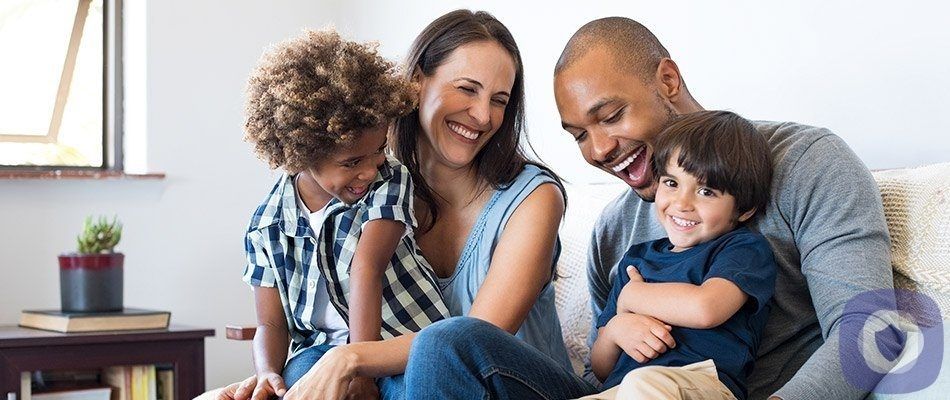Each year in the United States, an estimated 161,374 people die as a result of accidental injuries according to the Center for Disease Control and Prevention. While car accidents account for a significant portion of these injuries, deaths in the home are also common — especially due to falls and poison. Children, in particular, are at risk of suffering a serious or fatal injury while in their own house.
Your home should be a safe haven, but there are many hazards within the home that could put your family’s safety at risk. By following some basic home safety tips, you can significantly reduce the chances of accidents and injuries and ensure that your home is as safe as possible. If you’re not sure how to get started in making your home safer, here are five tips to put into practice ASAP.
1. Keep dangerous drugs and chemicals out of reach
Poisoning is cited by the Centers for Disease Control and Prevention as one of the leading causes of fatalities due to accidental injuries. In fact, poisoning accounts for more than 58,000 deaths each year.
You can reduce the risk of poisoning by:
- Safely storing prescription drugs and any other dangerous substances in your home. Dangerous substances including cleaning products, antifreeze, and laundry detergent pods can be attractive to children and elderly adults suffering from dementia.
- Locking cabinets with prescription drugs. Keeping your medications in a secure cabinet can ensure curious teenagers don’t experiment with dangerous medications. Criminals also break into homes looking for opioid medications and other drugs and you don’t want to become a source for would-be thieves seeking out a high.
2. Take steps to reduce the risk of falls
Falls are another leading cause of injuries at home, according to the CDC. Children and the elderly are especially vulnerable but anyone could suffer injury due to a fall. To reduce the risk:
- Put down non-slip stickers or mats in showers and on slippery flooring.
- Replace tiles or other slippery surfaces with materials less likely to be dangerous when wet.
- Fix broken tiles that create uneven surface areas and fix or replace broken stair railings.
- Make sure rugs are secured and that rugs lay flat with no corners sticking up to create a tripping hazard.
3. Don’t share too much information on the Internet
Do you post on Facebook when you’re going on vacation or put up an Out-of-Office reply when you go away? Do you “check in” to other places on social media when you’re away from home? If you do, you’re letting burglars know exactly when your house is likely to be empty. This increases the risk of someone breaking into your space.
You may also make it easier for thieves to break in if you have lots of pictures of your home or may make it more tempting for a would-be burglar if you post shots of valuable items in your house.
To reduce your risk:
- Consider making your accounts private so only close friends can see your information.
- Set up out-of-office alerts so they only go to people on your contact list when they send emails.
- Limit what you post about your location online, refrain from showing off valuable jewelry or other items on social media posts, and avoid specifying online when you’re away from home.
Keeping your kids safe is incredibly important as well. Check out our parental control guides for more on how to secure common tools and apps.
4. Look for vulnerabilities that could allow criminals to access your home
Many burglars are opportunists and look for easy ways into a home. If you’ve made your home too inviting, you’re far more likely to become the victim of a break-in. To reduce your risk:
- Check your door locks to make sure they’re in good working order.
- Check to ensure your windows are closed and locked.
- Consider using a door security bar if you have sliding doors.
- Make sure your home is well-lit with no dark areas where burglars could lurk.
- Avoid planting large landscaping bushes near windows or doors where burglars could hide when trying to break in.
Check out our tips for securing sliding glass doors.
5. Install a monitored alarm system
Finally, one of the best ways to make your home safer is to install a monitored alarm system. A monitored alarm could make your home safer by:
- Deterring criminals. Studies have shown that cameras, alarm systems, and even home security signs make break-ins less likely to occur.
- Ensuring first responders are promptly notified if there’s a fire, carbon monoxide leak, or other problems. Many alarm systems come with sensors that detect all different sorts of problems in your home, including gas leaks, floods, fires, and break-ins. With these monitored alarm systems, first responders are immediately notified of problems.
Interested in our pick for the best monitored security option? Check out our ADT review.
These safety tips can greatly reduce risk in your home
By taking these simple steps, you can reduce internal and external hazards and make your home much safer for you and your family. You want to rest easy knowing that you’ve done everything possible to reduce the dangers that you face at home, so making the effort to following these basic home safety tips is definitely worthwhile.
This article has been reviewed and approved by Officer Banta.

Officer Banta is the official SecurityNerd home security and safety expert. A member of the Biloxi Police Department for over 24 years, Officer Banta reviews all articles before lending his stamp of approval. Click here for more information on Officer Banta and the rest of our team.

